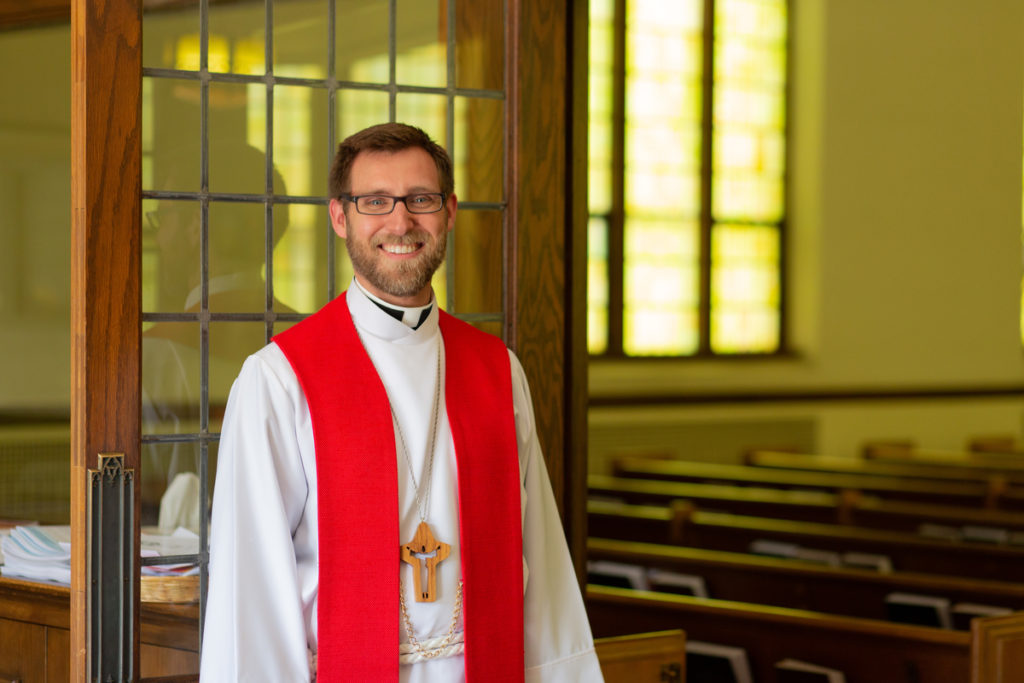On May 17, a couple weeks after the news broke of a leak of a draft opinion written by Supreme Court Justice Samuel Alito, ELCA Presiding Bishop Elizabeth Eaton released “A Pastoral Message on Abortion.” A link to her letter can be found here.
Please find below my analysis of what she has written.
Typically misleading
It is very typical of Bishop Eaton to say a few words to make it sound like there is room for traditional views within the ELCA, but then she always comes down solidly on the revisionist side.
In the third paragraph of her communication she refers to the ELCA’s 1991 social statement on abortion and says, “This church holds both women and ‘developing life in the womb’ (page 2) as neighbors.” She acknowledges “life in the womb” as life and seems to give the impression that that life will be valued, considered, and cherished. She goes even further in the third paragraph when she adds, “This church longs for a future with fewer abortions every year.”
So far it sounds good. But in the seventh paragraph, after advocating for a “more just society that cherishes and guarantees the dignity of all,” she expresses no concern for cherishing and guaranteeing the dignity (or even life) of the “developing life in the womb.” She acknowledges the “developing life in the womb” as life, but then totally ignores any concern for the rights, preservation, and cherishing of that life.
Lack of clarification
In the third paragraph she states that the ELCA opposes “the total lack of regulation of abortion” (page 9 of the 1991 social statement) but does not state or affirm what kind of “regulation of abortion” the ELCA would and does support. As is typical, Bishop Eaton is very careful to make sure that she does not say anything that would lead to her being “blasted” by liberals and progressives. I understand that that is what happened when she said after the death of George Floyd that rioting was not peaceful protesting.
In the fourth paragraph she says, “Abortion must be legal, regulated, and accessible,” but she says nothing about how abortion should be “regulated.” Again, if she were to do so, she probably would be “blasted” by liberals and progressives.
She says nothing specific and definitive about whether there are situations where abortion would not be a morally defensible decision. She says nothing about the kinds, timing, and/or circumstances of abortions that the ELCA would not or might not support. She says nothing about the difference between situations where abortion may be deemed “medically necessary” for the life, health, and well-being of the mother, and situations where abortion is an easy way to get rid of an inconvenience.
One-sided concern
Her concern for protection is totally one-sided.
In the fourth paragraph she says, “People who choose to have legal abortions should not be harassed,” but she shows no concern regarding –
- The vandalizing of church buildings or the disruption of worship services for congregations with traditional views.
- The picketing and protesting outside the homes of SCOTUS Justices with the intent to harass and intimidate.
- The long-term effects of allowing people who need to make difficult decisions to be harassed and intimidated – whether at the federal or local level, or even in the church.
Here is one more example of Bishop Eaton’s being very careful to make sure that she does not say anything that would result in her being “blasted” by liberals and progressives.
She also does not address the whole issue of the leak of a SCOTUS document and how that kind of betrayal of trust undermines the integrity of our institutions.
Fearmongering
She engages in the same kind of fearmongering that has been running rampant in this situation.
In the sixth paragraph she says, “Any Supreme Court decision similar to the leaked draft. . . . has the potential to foster communities of conflict and moral policing rather than complex moral discernment. It will likely endanger or cause the deaths of people who need an abortion. And the legal bases (sic) established by any such decision threaten people’s access to birth control, same-sex marriage, voting rights and their right to privacy.”
Bishop Eaton makes these statements even though the draft opinion clearly states that the right to have an abortion is “fundamentally different” from “rights recognized in past decisions involving matters such as intimate sexual relations, contraception, and marriage.” (page 5)
She makes strong statements but then gives no evidence for how a change in one area (abortion) would threaten all these other areas.
Those who hold traditional views were belittled and ridiculed for their concerns leading up to 2009 regarding the slippery slope – that changing the ELCA’s position regarding same sex marriage would lead to other changes. Here we see “the other side” having a major concern for the slippery slope.
In the seventh paragraph she adds, “Any ruling similar to the leaked draft will . . . damage the health and well-being of many. The prospect is daunting.” Again, she is fearmongering.
In the fifth paragraph Bishop Eaton says, “This church teaches that abortion and reproductive health care, including contraception, must be legal and accessible.” By combining contraception with abortion within this sentence Bishop Eaton is again engaged in fearmongering – implying that if the Supreme Court takes away your right to an abortion, it may next take away your access to contraception.
What the draft opinion actually says
A link to the draft opinion can be found here.
Please note these three significant sentences –
- “The constitution makes no mention of abortion.” (page 1)
- “No such right is implicitly protected by any constitution provision.” (page 5)
- Therefore, the draft would “return the issue of abortion to the people’s elected representatives.” (page 6)
Progressives/liberals say that the Supreme Court would make abortions illegal. In actuality, the draft opinion would overturn Roe v. Wade’s holding of a federal constitutional right to an abortion.
The draft opinion would not make abortions illegal. Instead it affirms that the constitution does not provide a basis for the right to an abortion. The right to have an abortion – or the limitations to the right – should be based upon the action of individual states.
In the sixth paragraph Bishop Eaton makes the statement, “I urge you to work locally to moderate any Supreme Court decision similar to the leaked draft.” In making that statement she seems to be acknowledging what the draft opinion is actually doing – returning the decision to the states.
Bottom line
Bishop Eaton’s “Pastoral Message on Abortion” makes one wonder whether she actually read the draft opinion before writing a letter about it.
She needs to be far more careful if she wishes to help contribute to “complex moral discernment” rather than “conflict and moral policing” (sixth paragraph). Instead of helping to avoid conflict, she has created conflict by releasing a statement that is highly critical of a position held by many within the ELCA. She is not serving well as presiding bishop of the whole church when she makes such strong statements that do not respect the diversity of viewpoint within the ELCA. Once again the ELCA communicates that in spite of all of its talk about diversity and inclusivity, traditional views and those who hold them are not welcome.



























The irresolvable conflict between Christain doctrine and progressive legitimacy is the former acknowledges the adherence to the Will of God, the prayerful pursuit thereto and that revelation being the sole purpose in our earthly lives, the acceptance of His forgiveness of our sins born by our Brother Christ Jesus, the risen Lord, places His Will first in our lives. The progressive puts his or her personal will above all else and justifies the position by rationalizing God’s crown of creation, mankind in its mortal form, can navigate relying on only his own resources. From the earliest Hebrew Scriptures through the final book of Revelation as written by the Disciple John, God’s Will must be prayerfully sought by The Family of Believers through communal discernment of His inspired Word. Mankind cannot survive divided with a foot on each side of that fence
Thank you for your bold witness.
The ELCA’s 1991 Social Statement on abortion is, like virtually all of the ELCA’s social statements, excruciatingly tedious and shows every sign of being a political document. Nevertheless, in her pastoral letter Eaton first cites it as if Moses brought it down from the mountain and then misrepresents it. Once past the tedium, in substance one finds the statement says:
The position of this church is that, in cases where the life of the mother is threatened, where pregnancy results from rape or incest, or where the embryo or fetus
has lethal abnormalities incompatible with life, abortion prior to viability should not be prohibited by law or by lack of public funding of abortions for low income
women. On the other hand, this church supports legislation that prohibits abortions that are performed after the fetus is determined to be viable, except when the
mother’s life is threatened or when lethal abnormalities indicate the prospective newborn will die very soon.
If she really took the 1991 statement as authoritative, she should simply have quoted the above and had done with it. In light of the Dobbs ruling, and supposing that Eaton does take the 1991 statement as authoritative, she might simply have reminded her flock of the statement’s position and told it to act consistently with the statement. Instead of treating the matter as having been resolved by the statement, she approaches it as if there were more to it. This is entirely disingenuous on her part. She pretends to take the statement as authoritative and then opens it up for further debate.
Most importantly she contends that the Dobbs opinion contradicts “this church’s” teaching on abortion. She needs to be asked to state in what specific sense the opinion contradicts “this church’s” teaching on abortion. The opinion takes no position at all on the matter of abortion, as such. The opinion states only that the United States Constitution does not provide a constitutional right to abortion or address it in any way. It doesn’t say what society’s position on abortion ought to be or whether it should be sanctioned or not– only that the Constitution cannot be read to address the issue. For her to say that the opinion contradicts her church’s (I thought there was one church and that it was the Lord’s) teaching on abortion she must believe that the opinion takes some policy position on the matter different either from that of the 1991 statement or whatever policy position she twists out of that statement. That is an impossibility because of the Court’s position that it does not make policy and the Court had overstepped its bounds in Roe and Casey. Eaton’s claim that the opinion contradicts her church’s teaching on abortion is specious and does not hold up in any sense.
Once again she only shows that she cares nothing for logic and has neither any modicum of either intellectual prowess or integrity.
Instead
Thank you for sharing these insights. A further review of the ELCA’s social statement on abortion will be a part of the July issue of our newsletter, CORE Voice.